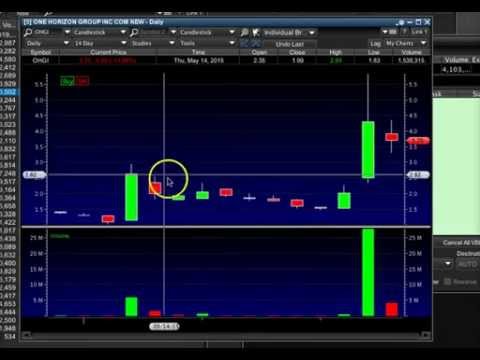A few days I exposed this hot topic that so many people misunderstand and today I want to expose some more misinformation about who the best stock trader in the world is.
Is it the trader profiled in the blog post “Best Guest Post Ever From A Trader Who Makes $1 Million/Year“?**
After all, as you can see here, he’s now made over $10 million** and the man also gives fascinating presentations as those of you who have this guide know and as you can see a little here:
Is it the trader featured HERE and HERE as while he’s “only” closing in on $3 million in profits**, he had just $1,500 to his name just a few years ago:
Or could it be this veteran trader who also just created his first millionaire student** in young Mattie Owens who just passed $1.3 million in profits in 2 years**:
Or is it my 1st millionaire trading challenge student** who I wrote about HERE…hmmmmm, I don’t know but he definitely wins the award of best hair of any trader in the world!
Some people would say Tim, you’re being too humble, you’re the best trader in the world!
But am I really with my now $4.4 million in trading profits**, every trade detailed publicly here?
And some audits, brokerage statements and income taxes posted HERE…I somehow doubt it as evidenced by bone-headed losses like THIS and THIS
So, who out of all of us is the best stock trader in the world?
Well, this guy is definitely out because he trades far too many non-stock related financial instruments like futures and commodities, sorry Mattie!
This great trader is out because he’s running hedge funds now so he can’t post his trades transparently anymore so we don’t know how he’s doing (although given his short of HMNY n the $13s, which is now in the $9s, I’d guesstimate pretty damn well) and I’m certainly out because I prioritize teaching over trading profits as I posted HERE, explaining why instead of trying to manage more money and charge ridiculous “management fees” like everyone else on Wall Street, I went back to trading with just $12,415 this year (which has now grown to roughly $50,000 in 5 months).**
And, come to think of it, we’re ALL of the running for “world’s best out since we’ve each “only” made $3, $4, $5-10 million** and in the grand scheme of Wall Street, that’s peanuts, the top traders working for billion dollar hedge funds LITERALLY make that in a day or two!
More Breaking News
- Baidu Unveils Major AI Advancements, Stock Eyes On The Future
- SaverOne: The Latest Updates and Market Trends
- WNS Stock Skyrockets: What’s Next?
That’ right I said it…while many people all over the world look up to/worship these millionaires I mentioned, and I’m not saying I’m not grateful for every single penny I’ve earned, it’s important to understand that we’re ALL niche traders who, while we’ve had much success, make 1/100th or even 1/1000th of the money the world’s top traders make.
Of course, the world’s top traders also utilize tons of leverage on top of having hundreds of millions or billions of dollars to play with so their % gains are much less than ours, and remember, it’s not even their own money that they’re trading with, it’s usually a big bank’s money or hedge fund investors’ money, so the traders only get to keep a small portion of any profits they make, but needless to say, EVERY trader on Profitly, and any other social media network for that matter, is a mere guppie compared to the real top traders on Wall Street.
Now, before you think I’m ripping on myself or anyone else that I’ve mentioned, I’m not. I couldn’t be prouder of my top millionaire trading challenge students and every other self-made millionaire trader out there, and at least thanks to Profitly, there’s a platform that allows for full transparency, unlike the FAR too many traders who claim to be successful and experts, but don’t post their ENTIRE track record publicly so you literally have no idea if they’re up or down a few million dollars (it’s very easy to sound convincing in the stock market, look at all the schmucks who do it daily in Manhattan, on CNBC, in the Wall Street Journal and on Twitter, with their expensive suits, ties, shoes and secretive cocaine addictions, second families and mistresses galore (oh yeah, I loved in NYC for several years, you wouldn’t believe half the shit I’ve seen…Billions on Showtime is non-fiction) and the social media liars who only post a screenshot of a big win here or there or who rationalize “I don’t need to post a track record, I show trades live in webinars”)
ANYONE can look good for a day, week, month or even a few years, but to be a truly successful trader you must learn to profit in both bull AND bear markets and the reality is that most social media traders haven’t seen what happens in bear markets (I pray every day for one to come soon and wipe out all these over-confident newbies!)
But I write this post to remind you of the great big financial world out there to keep everything in perspective. Truthfully, being the best trader means little when you’re trying to learn.
The top earning traders strategies’ REQUIRE vast amounts of capital, mathematical skills, leverage, brokerage connections, informational connections, blah blah blah, stuff that average people have NO chance at getting and no business even getting into!
In fact, many of the best traders I know are the weirdest and most annoying people you’ve ever met, myself included, and I wouldn’t want to learn from them even if you paid me…especially since the type of knowledge that brings in the truly big money hurts my head when I try to think about all those algorithms and high-frequency trading where 1/3 of a second is an eternity in determining whether you have a big profit or loss.
Instead of focusing on wanting to be “the best stock trader in the world”, or wanting to learn from “the best traders in the world”, focus on doing something that 90%+ of traders cannot and don’t do: being consistently profitable.
It doesn’t happen overnight, even my top trading challenge Tim G. said it took him roughly 3 months of study and 6 months of testing out trading strategies before he began to profit consistently** so have patience and don’t expect too much too soon.
And it’s not always about who makes the most money, the several billionaires that I know and have hung out with are hardly even human anymore since they have TOO much money and that has screwed them up for life…seriously.
Everyone think they want to be a billionaire and yet as I’ve proven, you can live an incredible life with just a few million dollars…so set your sights lower, that’s why I call my teaching for my most dedicated students the millionaire trading challenge, not billionaire challenge!
And while I’ve definitely gone through times of being too cocky/egotistical thanks to all my success, I’ve simmered down now in my 30s and, like my stock trading strategy, I want you to take the “meat of the move” when it comes to trading…not focusing on arcane strategies that will take you a lifetime to try to understand and execute (unless you’re a rocket scientist or Ivy League PhD, then by all means go for it…but then again, why are you reading my blog if you’re a true brainiac, my strategy is for average people so leave us plebs alone you geniuses out there!)…focus on the low-hanging fruit, easier stock trades, even “gimmies” like these that can result in small gains over time…and add up trades as you continue to grow.













Leave a reply